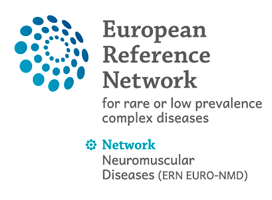29 May 2020
An Italian Neurology Outpatient Clinic Facing SARS-CoV-2 Pandemic: Data From 2,167 Patients
Authors:
Carla Piano, Enrico Di Stasio, Guido Primiano, Delfina Janiri, Marco Luigetti, Giovanni Frisullo, Catello Vollono, Matteo Lucchini, Valerio Brunetti, Mauro Monforte, Valeria Guglielmi, Giacomo Della Marca, Amelia Evoli, Camillo Marra, Massimiliano Mirabella, Davide Quaranta, Enzo Ricci, Serenella Servidei, Gabriella Silvestri, Simone Bellavia, Sara Bortolani, Francesco Bove, Riccardo Di Iorio, Andrea Di Paolantonio, Danilo Genovese, Tamara Ialongo, Maria Rita Lo Monaco, Jessica Marotta, Agata Katia Patanella, Alessia Perna, Martina Petracca, Giorgia Presicce, Vittorio Riso, Eleonora Rollo, Angela Romano, Marina Romozzi, Cristina Sancricca, Irene Scala, Gregorio Spagni, Marcella Solito, Luca Tricoli, Paola Zinzi, Paolo Calabresi and Anna Rita Bentivoglio
Objective: Neurological sequelae of SARS-CoV-2 infection have already been reported, but there is insufficient data about the impact of the pandemic on the management of the patients with chronic neurological diseases. We aim to analyze the effect of COVID-19 pandemic and social restriction rules on these fragile patients.
Methods: Patients with chronic neurologic diseases routinely followed at the outpatient clinic of Gemelli University Hospital, Rome, were assessed for symptoms suggestive of SARS-CoV-2 infection in the pandemic period, consequences of social restrictions, and neurological disease features, concomitant medical conditions, current medical and disease-specific treatments. Data source: a dedicated telephone survey designed to encompass questions on COVID-19 symptoms and on pandemic effects in chronic neurologic conditions.
Results: Overall, 2,167 individuals were analyzed: 63 patients reported contact with COVID-19 positive cases, 41 performed the swab, and 2 symptomatic patients tested positive for COVID-19 (0.09%). One hundred fifty-eight individuals (7%) needed urgent neurological care, deferred due to the pandemic; 641 patients (30%) suspended hospital treatments, physiotherapy or other support interventions; 405 individuals (19%) reported a subjective worsening of neurological symptoms.
Conclusions: In our population, the presence of neurological chronic diseases did not increase the prevalence of COVID-19 infection. Nevertheless, the burden of neurological disorders has been worsened by the lockdown.

